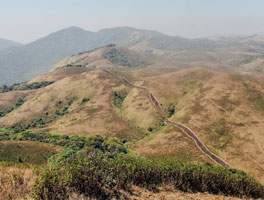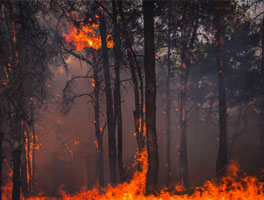 |
Dear readers,
Welcome to the Climate Weekly newsletter by the Centre for Science and Environment’s Climate Change programme and Down to Earth.
Last year, the G7 group of countries - Canada, France, Germany, Italy, Japan, the United Kingdom and the United States – announced a “climate club”. It will “foster the implementation of the Paris Agreement” they said. It sounds benign enough but what is a climate club? Essentially, it is an agreement between like-minded countries to accept mutually agreed environmental standards and produce goods in accordance with those. Subsequently it enables favourable trade between members of the club. It was proposed by an economist to overcome the so-called problem of “freeriding”, where some countries make efforts to cut emissions while others don’t, but the latter benefit from the global emission reductions achieved. Climate clubs gather small coalitions of countries – like schoolyard cliques- who are willing to work together on climate policy, since achieving a global climate deal that satisfies all the diverse interests has been hard (sure, ask us).
But many argue that freeriding is not the problem - the climate problem is about unequal distribution of power and resources. And they add that climate clubs would exclude vulnerable countries who cannot adhere to the standards – which are likely to be determined and imposed by wealthy countries.
Nevertheless, large developing countries like Indonesia and Chile are interested, since they potentially see benefits - particularly for manufacturing and exports - that they can extract from such deals. India is mulling participating in the G7’s climate club as well.
Elsewhere, the IEA has come up with numbers for what the world needs to invest to cut methane emissions from oil and gas.
The WMO has declared the onset of the El Nino, which originates in the equatorial Pacific Ocean, and could lead to a likely surge in global temperatures and disruptive weatherpatterns. For India, many El Nino years have led to droughts and decreased monsoon rainfall.
Meanwhile, farmers in Maharashtra use social media platforms to protect each other’s crops from extreme weather.
Join CSE’s Global Online Certificate Course on Demystifying Environment Data for Communication and Impact.
|
|
 |
| |
 |
|
| |
 |
 |
| |
By - Avantika Goswami
Climate Change, CSE
|
| |
|
 |
|
|
| |
 |
|
| |
| EXTREME WEATHER TRACKER |
| |
South India records its lowest June rainfall in 122 years, 05 July 2023
|
 |
 |
|
|
| |
 |
|
| |
 |
 |
It’s official: Australia is set for a hot, dry El Nino. Here’s what that means for the flammable continent, 05 July 2023
|
|
|
| |
|
|
| |
|
|
| |
 |
|
| |
|
|
| |
|
|
| |
|
|
| |
 |
|
| |
|
|
| |
 |
|
| |
CLIMATE NEWS | SCIENCE| IMPACTS| POLITICS |
|
| |
 |
|
| |
|
|
| |
 |
|
| |
|
|
| |
 |
|
| |
|
|
| |
 |
|
| |
|
|
| |
 |
|
| |
|
|
| |
 |
|
| |
|
|
| |
 |
|
| |
|
|
| |
 |
|
| |
|
|
| |
 |
|
| |
|
|
| |
 |
|
| |
|
|
| |
 |
|
| |
|
|
| |
 |
|
| |
|
|
| |
 |
|
| |
|
|
| |
 |
|
| |
|
|
| |
 |
|
| |
|
|
| |
 |
|
| |
|
|
| |
 |
|
| |
|
|
| |
 |
|
| |
|
|
| |
|
|